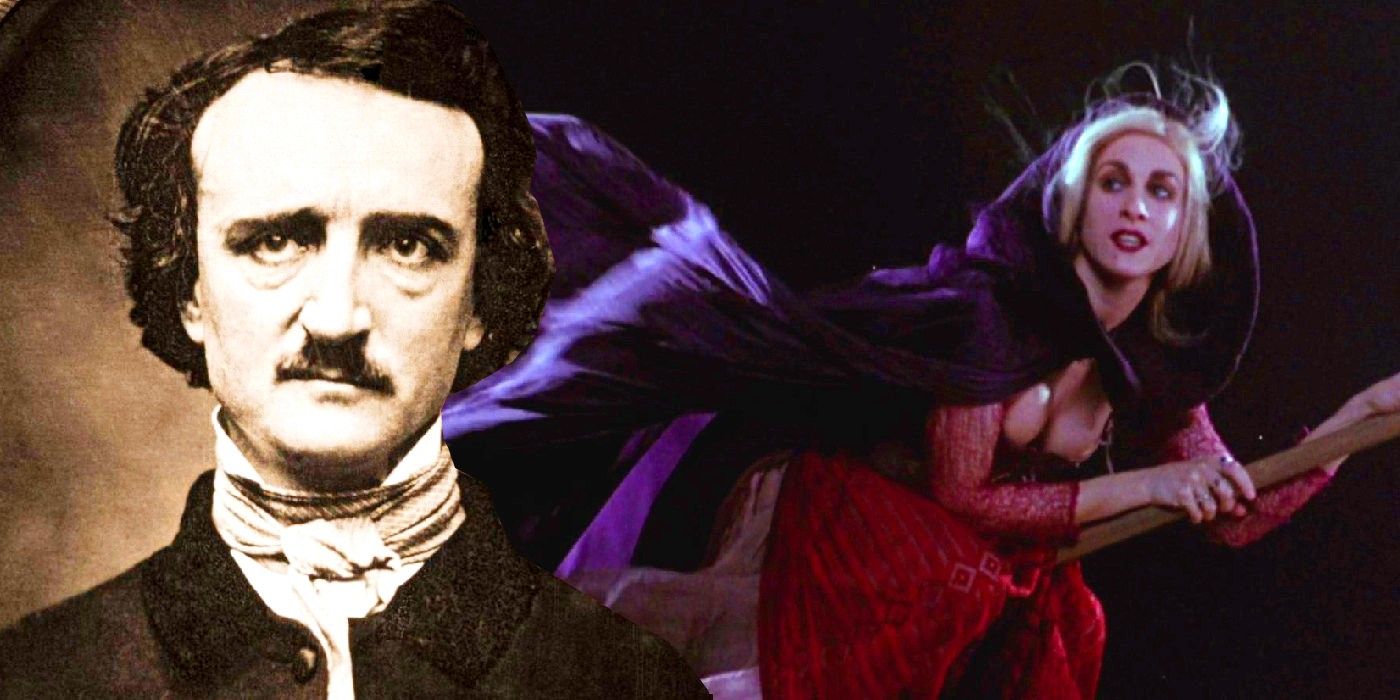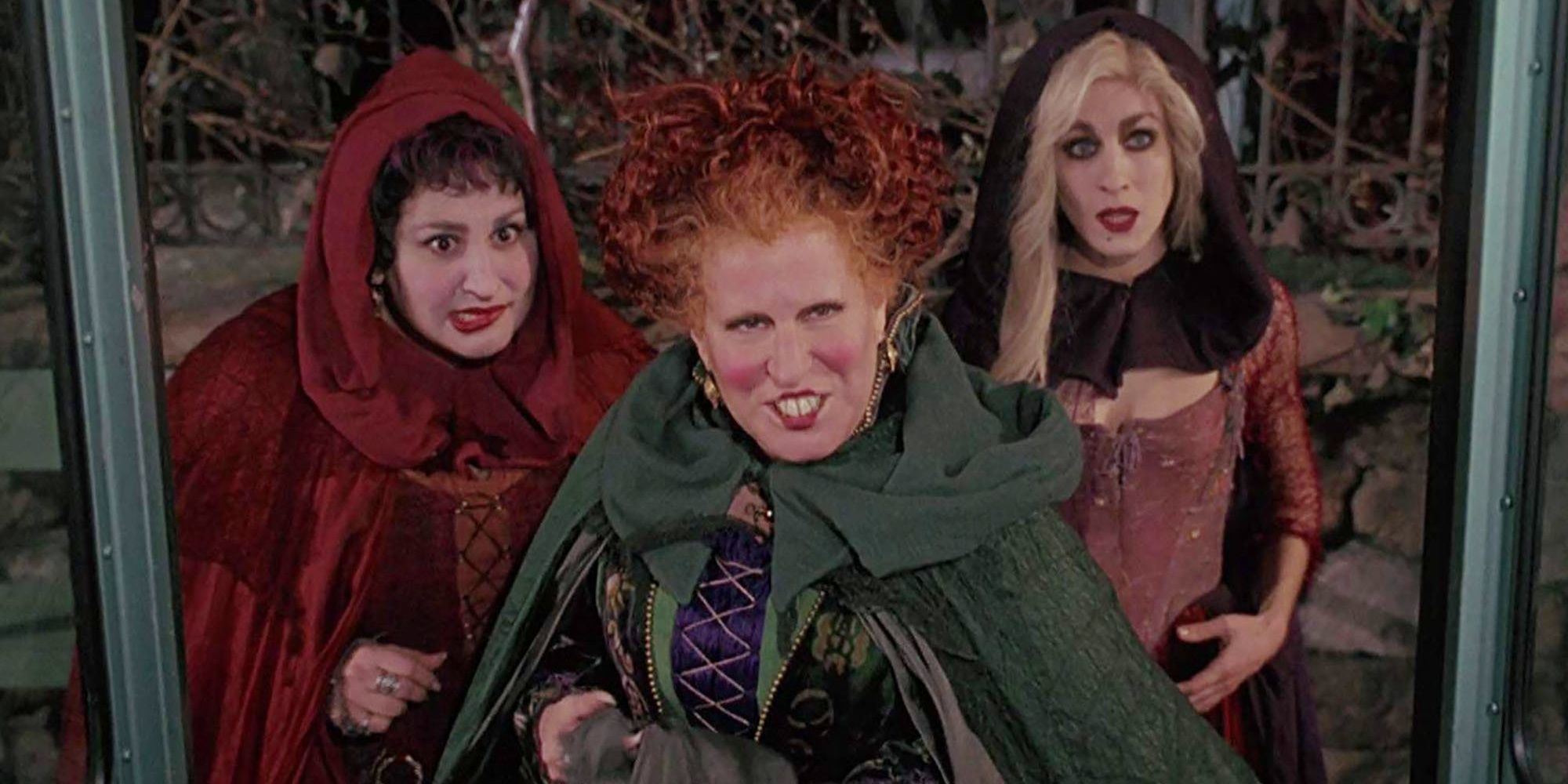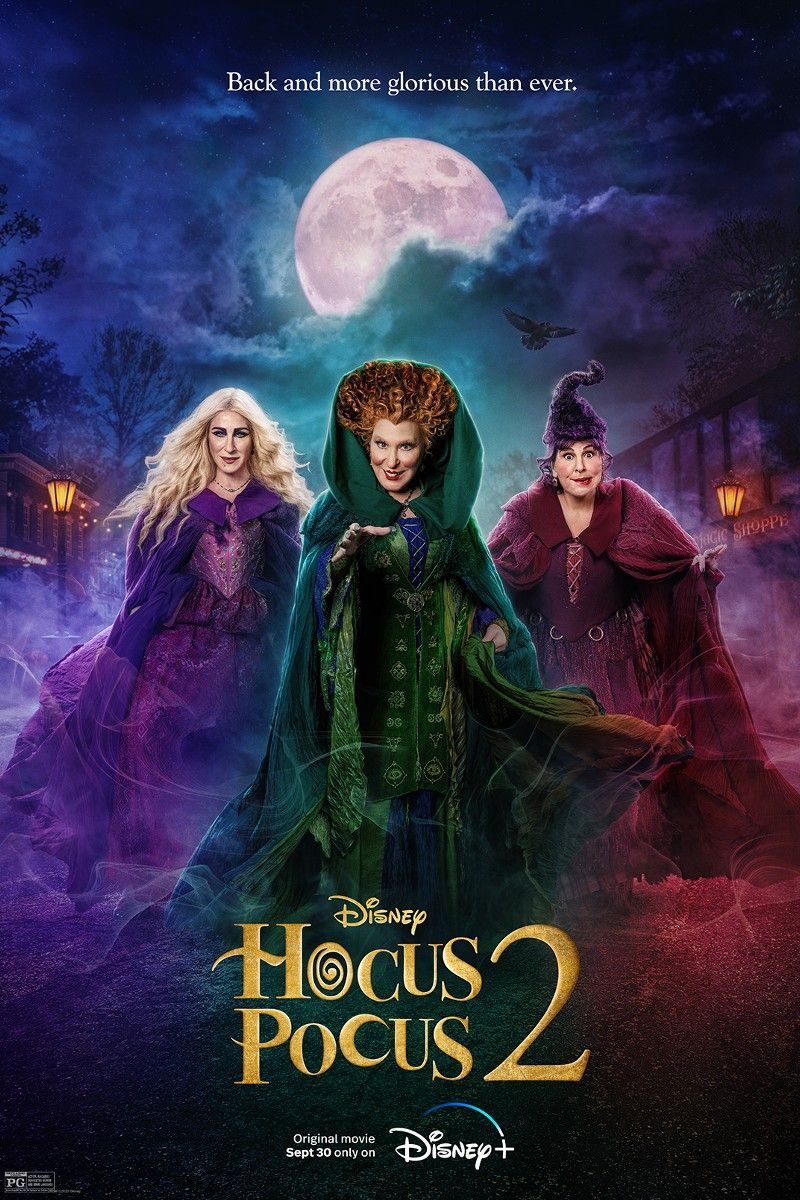Sarah Sanderson's lullaby "Come Little Children" is one of several original songs composed for Disney's Hocus Pocus, but some fans theorize that another famous poet may have penned its lyrics. The iconic witchy film premiered in 1993, but Hocus Pocus stills holds massive cultural popularity due to annual showings on both Disney Channel and Freeform. With a haunting score and vivid performances from stars Bette Midler, Sarah Jessica Parker, and Kathy Najimy, Hocus Pocus has become a true Halloween staple.
Directed by Kenny Ortega, Hocus Pocus follows the trio of devious witch sisters Winnie, Sarah, and Mary Sanderson when they are accidentally resurrected by teenager Max on Halloween night. After three centuries of being trapped, the witches are horrified at the campy holiday Halloween has become and are subsequently eager to get back to consuming the souls of Salem’s children. To do so, they use spellbooks and cauldrons bursting with magic, with the other Sanderson sisters relying on Sarah to sing a magically enticing lullaby to lure the children to the Sanderson cottage.
Sarah’s song “Come Little Children” was composed by James Horner with lyrics by Brock Walsh, but the theme’s spooky tune had Hocus Pocus fans theorizing that the lyrics were stolen from a poem by Edgar Allen Poe. In the film, Sarah sings a single verse to enrapture the children of Salem: “Come little children, I’ll take the away / into a land of Enchantment. / Come little children, the time’s come to play / here in my garden of magic.” Curiously, another version of the lullaby can be found online, with two extra verses and some differing vocabulary. This new version, combined with the popularized Hocus Pocus version, had fans eager to discover who truly wrote the song for the Disney Channel Original Movie.
Officially, Walsh is undeniably credited on IMDb for the lullaby’s lyrics, having a solid professional claim to the song alongside composer Horner. He had previously penned music for films John Q (2002) and TV series Cop Rock (1990), as well as Hocus Pocus’s various “Chants and Incantations,” so it wouldn’t be the first or only time he had contributed music to the Disney film. However, “Come Little Children”’s darker tone and lyrical rhythm had a few apocryphal sites claiming that the lyrics were taken from a supposed Poe poem also titled “Come Little Children.” The poem had contained the extra verses and word changes found in the online version, and the version in the streaming Halloween film contained a macabre fantastical tone somewhat similar to Poe’s official works. Additionally, the company who handles the license for “Come Little Children,” Hal Leonard Corporation, has officially included “Text based on the poem “Come Little Children” by Edgar Allan Poe” in the song’s credit, adding a bit of weight to the Poe theory. With this, some fans insist that the mysterious “Come Little Children” poem had been the poet’s work.
Unfortunately, none of this holds up, as dissent from Poe scholars as well as the poem’s absence from Poe’s official body of work prove that there is little to no proof of his involvement. A poem of that title doesn’t appear in his omnibus, and the verbiage in the Hocus Pocus song is too simplistic compared to poems like the famous “The Raven” or “A Dream.” Walsh himself had supposedly denied the theory in an email to author D. Melhoff, confirming that the lyrics were of his own original creation – but that he may have been inspired by a childhood fascination with Poe. As captivating as this theory is, it remains just a fun idea, proven wrong by the lyricist Walsh himself and by experienced Poe experts.
It isn’t quite clear where this strange theory originated from, but suffice it to say that Hocus Pocus’s soundtrack contains a wealth of festive Halloween tunes complete with eerie lyrics. With the success and renewed interest in the first film, Disney has announced a sequel, Hocus Pocus 2, set to release in 2022, so fans will have to wait to theorize what other poets may have supposedly contributed to the franchise.



